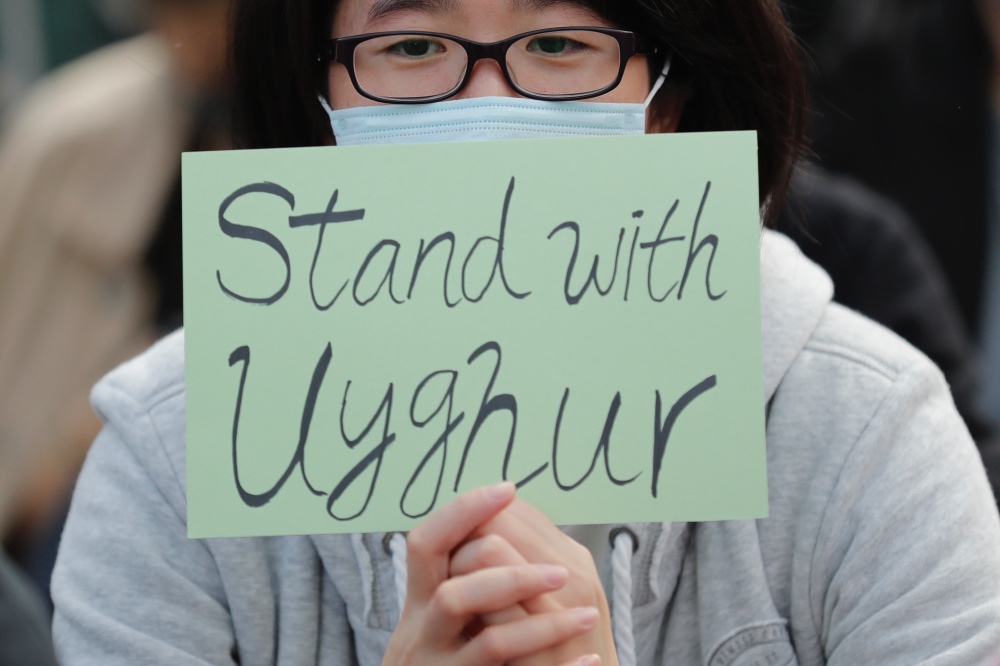Nury Turkel, co-founder of the Uyghur Human Rights Project and former president of the Uyghur American Association, was appointed to the US Commission on International Religious Freedom late last month. Born in the Xinjang province of China, he is a leading human rights advocate on behalf of fellow Uighurs, a Muslim ethnic minority group that has seen an estimated one million members detained in Chinese internment camps.
Turkel spoke with The Associated Press recently about his goals for his new position, which came a day before the House of Representatives approved bipartisan legislation that would impose sanctions on Chinese officials involved in the mass surveillance and detention of Uighurs and other ethnic groups.
How do you hope to use this new post and help move the commission toward even greater awareness of what’s going on with the Uighurs, and what can the US do to exert pressure on a multilateral basis?
“When Uighur Islam has been subject to deliberate, systematic attack, me being in this important position in a government agency that advances religious freedom around the globe speaks volumes. I would say the same thing if any other Uighur would get this appointment instead of me. It’s just symbolically so powerful.
“And it also came at a time when Uighur Muslims are marking the end of Ramadan, when Uighur Muslims in the homeland were forced to drink and prevented from fasting.
“Also, this is being done on the eve of historic legislation specifically designed to protect the Uighur people’s political, social and religious freedom. In politics, timing is everything.”

A man holds a sign during a rally to show support for Uighurs and their fight for human rights in Hong Kong on 22nd December, 2019. Nury Turkel, co-founder of the Uyghur Human Rights Project and former president of the Uyghur American Association, is a new member of the US Commission on International Religious Freedom. He’s a leading human rights advocate on behalf of fellow Uighurs, a Muslim ethnic minority group that has seen an estimated one million members detained in internment camps in China. PICTURE: AP Photo/Lee Jin-man/File photo.
To follow up on that legislation, what would you say are the next steps for that effort after such a successful showing?
“This is done in Congress; this is a done deal. So we’re just waiting for President Trump to either sign it or let it become a law on its own…I firmly believe that people in the administration, President Trump’s inner circle, acknowledge and recognise the seriousness of the atrocities in the Uighur region. Even though President Trump has not yet publicly raised the issue, I’m kind of losing track of the number of the times that Secretary [of State Mike] Pompeo has mentioned or raised the Uighur issue.
“I would like to see more. I’d like to see President Trump come to the podium and say something when he’s signing or not signing this bill…We are in the year 2020. A lot of unusual things are unfolding. But this is one of the circumstances that I don’t expect an unusual outcome.”
You note that the administration has been repeatedly drawing attention to this. But the average American probably doesn’t know much right now. How do you hope to use this position to ensure what the Uighurs face is known more deeply by more Americans?
“With my new role, I think this will become a wider subject for discussion because I will be working with my co-commissioners to have other faith groups engaged in this conversation: Christian groups, Jewish groups. Jewish groups have been very strong from the very beginning, because of the historic reference and reminder of the Jewish people’s own history. So it is changing. I think people are doing the right thing on the personal and professional and governmental level in the United States.
“People like to say, how about the Muslim countries? I think that’s a wrong question. We should ask, where is European support? Europeans have survived fascism, Nazi Germany. They know exactly how this ends…So it is both morally and historically the right thing to do for the Europeans to speak out.
“I anticipate a focus on some countries in my public engagement to encourage them to take a position – if not exactly the same as the US Congress and the executive branch, a similar position…People should be able to practice their religion. People should not be locked up in…modern-day concentration camps because they practice a certain religion.”
The conversation has been edited for clarity and brevity.





